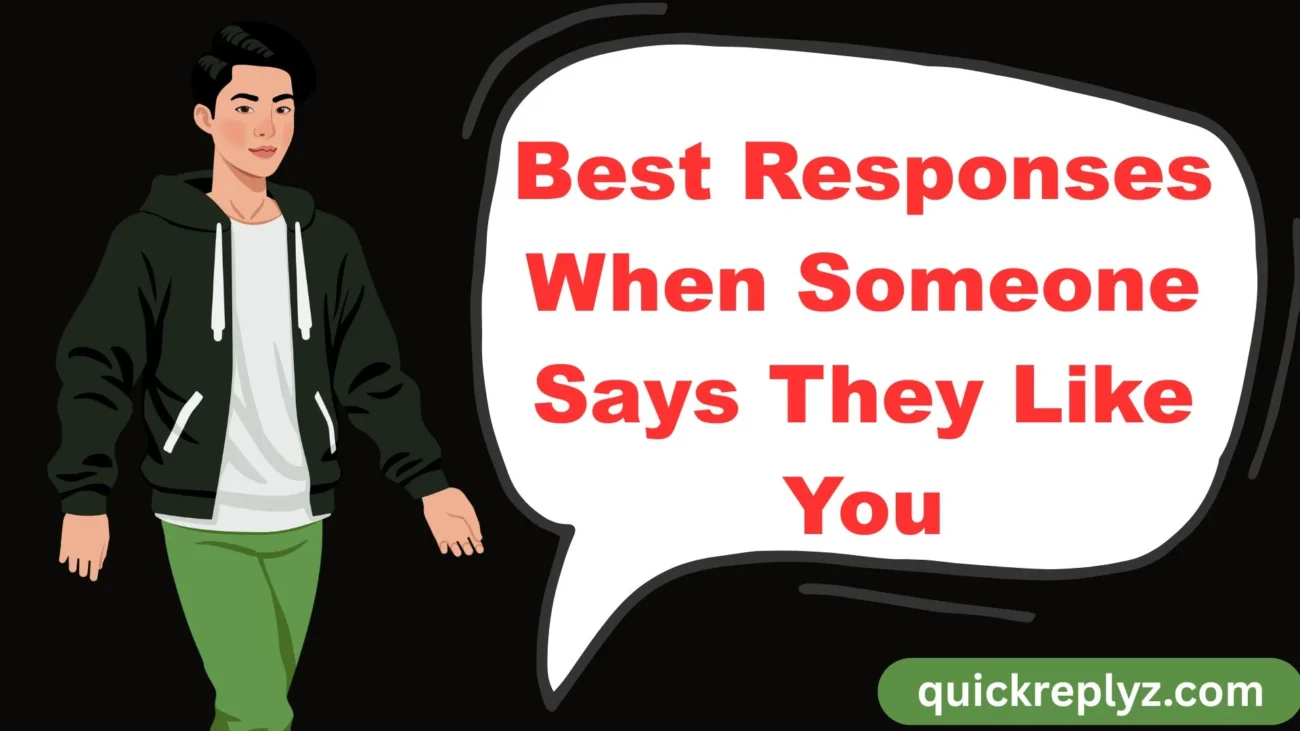When someone confesses, “I like you,” how you respond can either open doors or close them gently. Whether it’s mutual, unexpected, or not your vibe at all, having the right response matters.
This guide includes 30 best responses when someone says they like you, designed for different personalities and situations—from playful to polite, romantic to respectful.
These replies are emotionally intelligent, and crafted to help you stay authentic.
Another or professional Ways to Say “I Just Arrived”
1. “I like you too—how long have you felt this way?”
2. “That’s so sweet of you to say!”
3. “You’re really brave for saying that—thank you.”
4. “Wow, I wasn’t expecting that—but I’m glad you told me.”
5. “I think you’re pretty awesome too.”
6. “I like you too—this makes me really happy.”
7. “That means a lot—thank you for being honest.”
8. “You just made my day!”
9. “I like you… but just as a friend.”
10. “I’m flattered—thank you for telling me.”
11. “I’ve always liked you too—but didn’t know how to say it.”
12. “I wasn’t expecting that—but I’m open to see where this goes.”
13. “This is unexpected, but I admire your honesty.”
14. “You’re an amazing person—thank you for trusting me.”
15. “Let’s take things slow and see where this leads.”
16. “I’ve thought about this too—maybe it’s time we talked.”
17. “I really value our friendship, and I wouldn’t want to lose it.”
18. “Can I be honest? I’ve been feeling the same way.”
19. “I’m honored—thank you for opening up to me.”
20. “Let’s talk more about this when we’re both ready.”
21. “That means a lot—can I have some time to think?”
22. “I wasn’t sure you felt that way—thank you for telling me.”
23. “That’s really kind—I feel lucky to know you.”
24. “You’re special to me too, in your own way.”
25. “I respect how you feel—let’s not rush anything.”
26. “That’s really sweet—I’ve always admired you too.”
27. “Let’s be honest with each other—what do you want from this?”
28. “Your words matter more than you think.”
29. “Let’s take this one step at a time.”
30. “I’m grateful you trust me with your feelings.”
1. “I like you too—how long have you felt this way?”
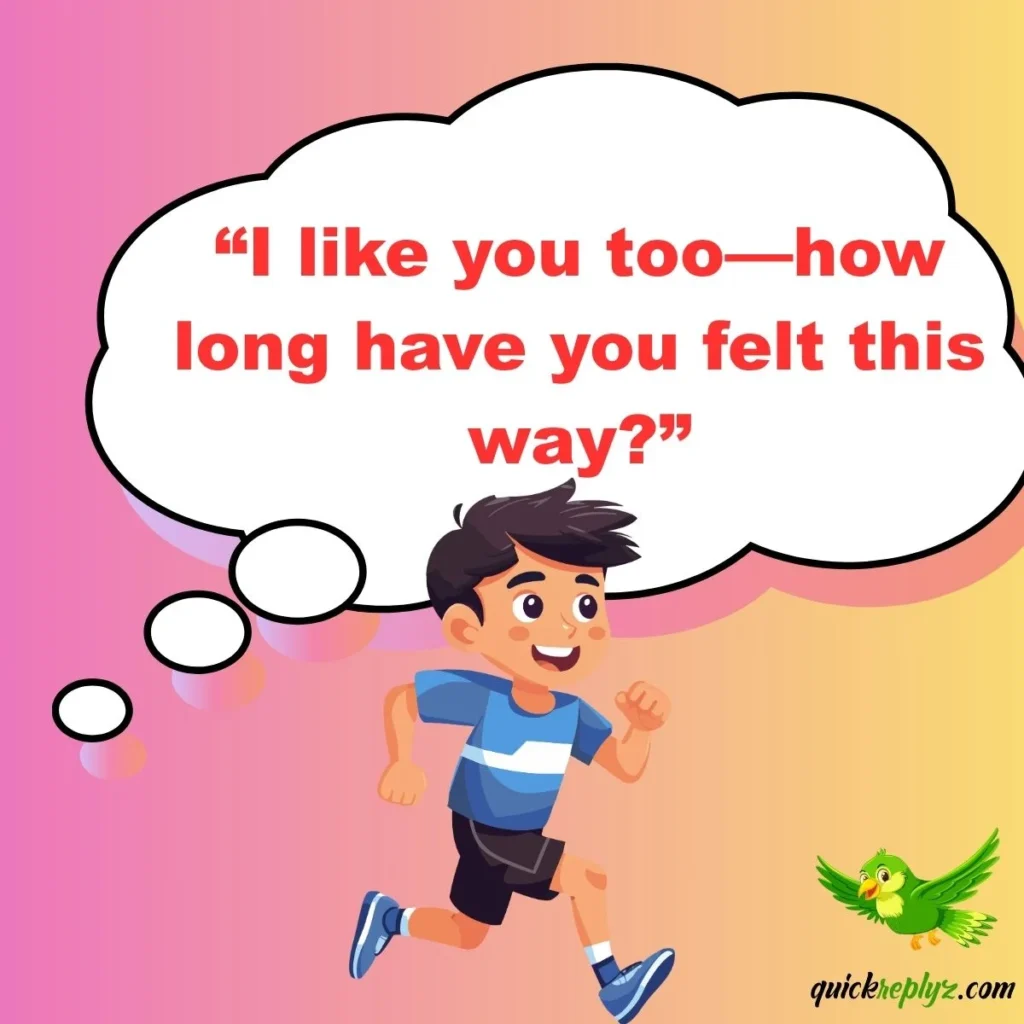
When the feeling is mutual, lean into it with curiosity. This response creates a space where both of you can share honestly. It’s open, heartfelt, and keeps the momentum going in a meaningful direction. Showing interest through a question deepens emotional connection.
Example: “I like you too—how long have you felt this way?”
Best Use: When you genuinely return their feelings and want to explore them further.
2. “That’s so sweet of you to say!”
If you’re caught by surprise, but want to keep the tone kind and friendly, this is a go-to reply. It acknowledges their courage and compliments them without making any promises. It works well when you’re unsure or not quite ready.
Example: “That’s so sweet of you to say!”
Best Use: In early conversations when you’re not sure how you feel yet.
3. “You’re really brave for saying that—thank you.”
Compliments like this validate their courage. It shows that you value their honesty without jumping to conclusions. It’s perfect for when you admire their openness but may not feel the same—or aren’t ready to respond with certainty.
Example: “You’re really brave for saying that—thank you.”
Best Use: When you’re not ready to express your feelings or want to pause with respect.
4. “Wow, I wasn’t expecting that—but I’m glad you told me.”
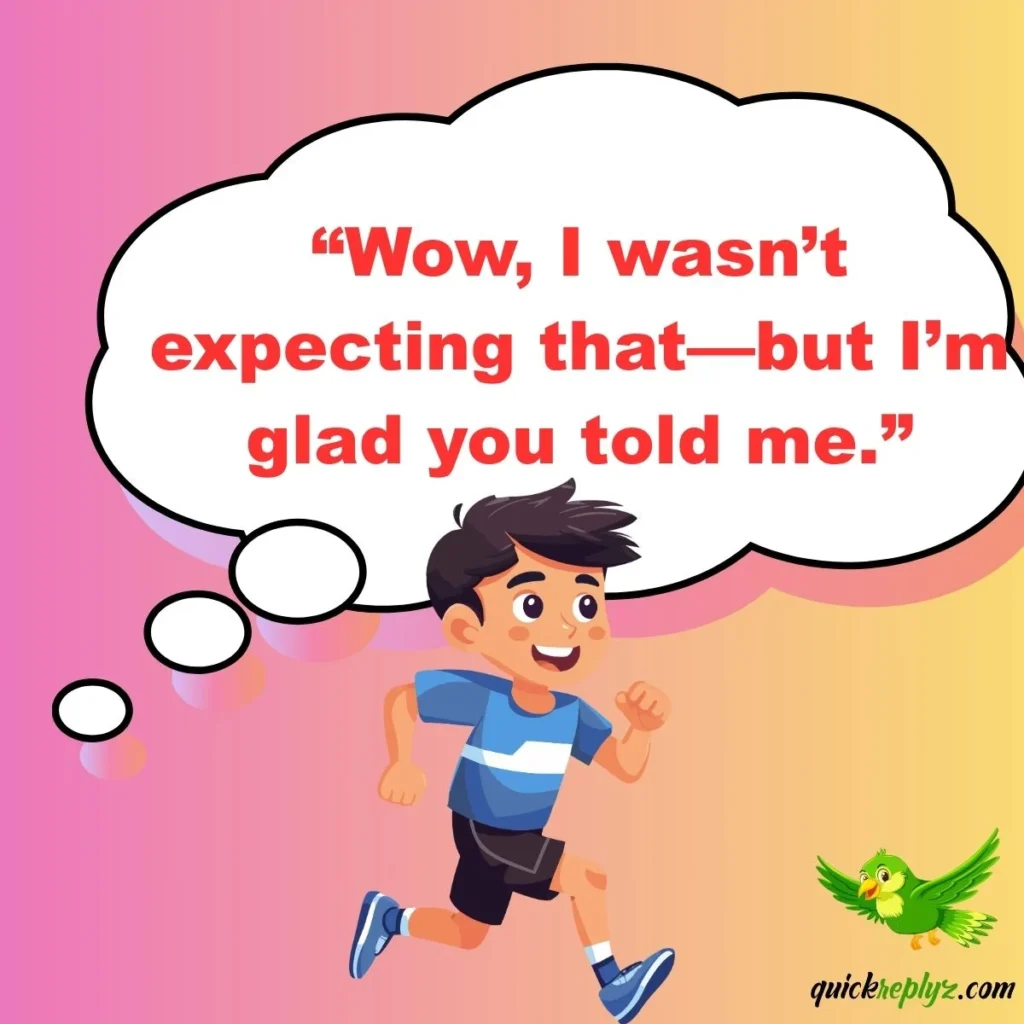
This honest and slightly surprised response keeps things neutral and graceful. It allows you time to process and shows you’re not rejecting them outright—just collecting your thoughts.
Example: “Wow, I wasn’t expecting that—but I’m glad you told me.”
Best Use: When someone confesses feelings unexpectedly, and you’re unsure how to react.
5. “I think you’re pretty awesome too.”
A sweet and safe reply that works well if you’re still exploring your feelings. It’s light, friendly, and doesn’t overcommit, yet it keeps the vibe upbeat.
Example: “I think you’re pretty awesome too.”
Best Use: When you’re flattered and want to keep the energy positive but relaxed.
6. “I like you too—this makes me really happy.”
Let joy shine when the feeling is mutual. This response makes them feel appreciated and gives the conversation emotional depth.
Example: “I like you too—this makes me really happy.”
Best Use: When you’ve been hoping for this and you’re ready to take it forward.
7. “That means a lot—thank you for being honest.”
Honesty deserves appreciation. This reply is perfect for when you admire their sincerity, even if you’re still uncertain or don’t feel the same.
Example: “That means a lot—thank you for being honest.”
Best Use: To show kindness and maturity while remaining neutral.
8. “You just made my day!”
Cheerful and heartwarming, this reply makes the person feel good about opening up. It doesn’t necessarily promise anything romantic, but it acknowledges their impact.
Example: “You just made my day!”
Best Use: When you’re flattered and happy, but not ready to go deeper yet.
9. “I like you… but just as a friend.”
A gentle and respectful way to let them down. Honesty wrapped in kindness protects both feelings and friendships.
Example: “I like you… but just as a friend.”
Best Use: When you don’t share their romantic feelings but want to preserve the connection.
10. “I’m flattered—thank you for telling me.”
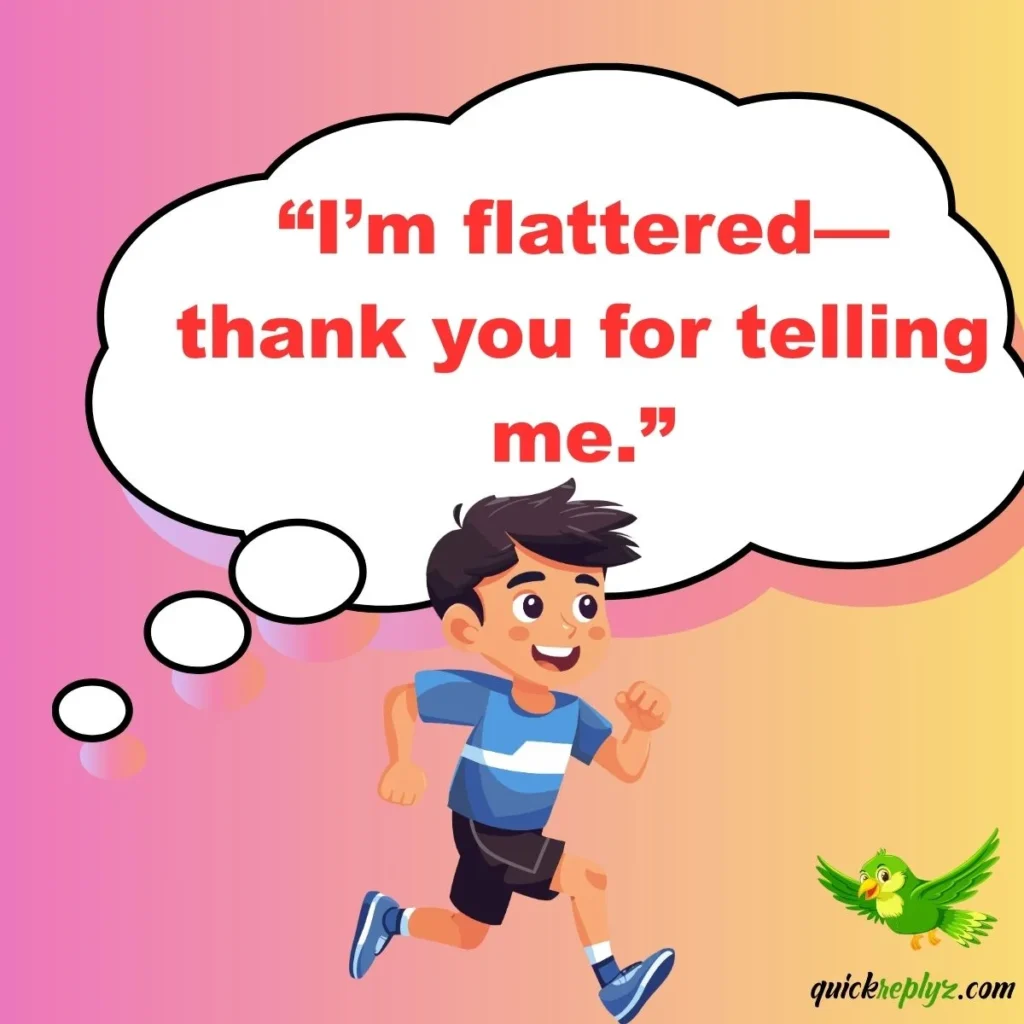
Gratitude goes a long way. This line respects their courage without putting pressure on you to reciprocate.
Example: “I’m flattered—thank you for telling me.”
Best Use: When you feel honored but not interested romantically.
11. “I’ve always liked you too—but didn’t know how to say it.”
Perfect for when you’ve been holding back your own feelings. This response can make the moment magical.
Example: “I’ve always liked you too—but didn’t know how to say it.”
Best Use: When you’ve been waiting for them to make the first move.
12. “I wasn’t expecting that—but I’m open to see where this goes.”
Curiosity and openness can create great beginnings. This line is great when you’re not sure yet but are willing to explore possibilities.
Example: “I wasn’t expecting that—but I’m open to see where this goes.”
Best Use: When you want to keep things open without making promises.
13. “This is unexpected, but I admire your honesty.”
Neutral and respectful. It doesn’t commit to anything, but leaves the door open for future conversations.
Example: “This is unexpected, but I admire your honesty.”
Best Use: When someone confesses out of the blue and you need time.
14. “You’re an amazing person—thank you for trusting me.”
Acknowledging their emotional effort builds trust, regardless of how you feel. It shows maturity and grace.
Example: “You’re an amazing person—thank you for trusting me.”
Best Use: Ideal in friendships or situations where emotions are delicate.
15. “Let’s take things slow and see where this leads.”
A balanced reply when you’re interested but cautious. It offers clarity and shared pacing.
Example: “Let’s take things slow and see where this leads.”
Best Use: When you’re open to dating, but want to avoid rushing.
16. “I’ve thought about this too—maybe it’s time we talked.”
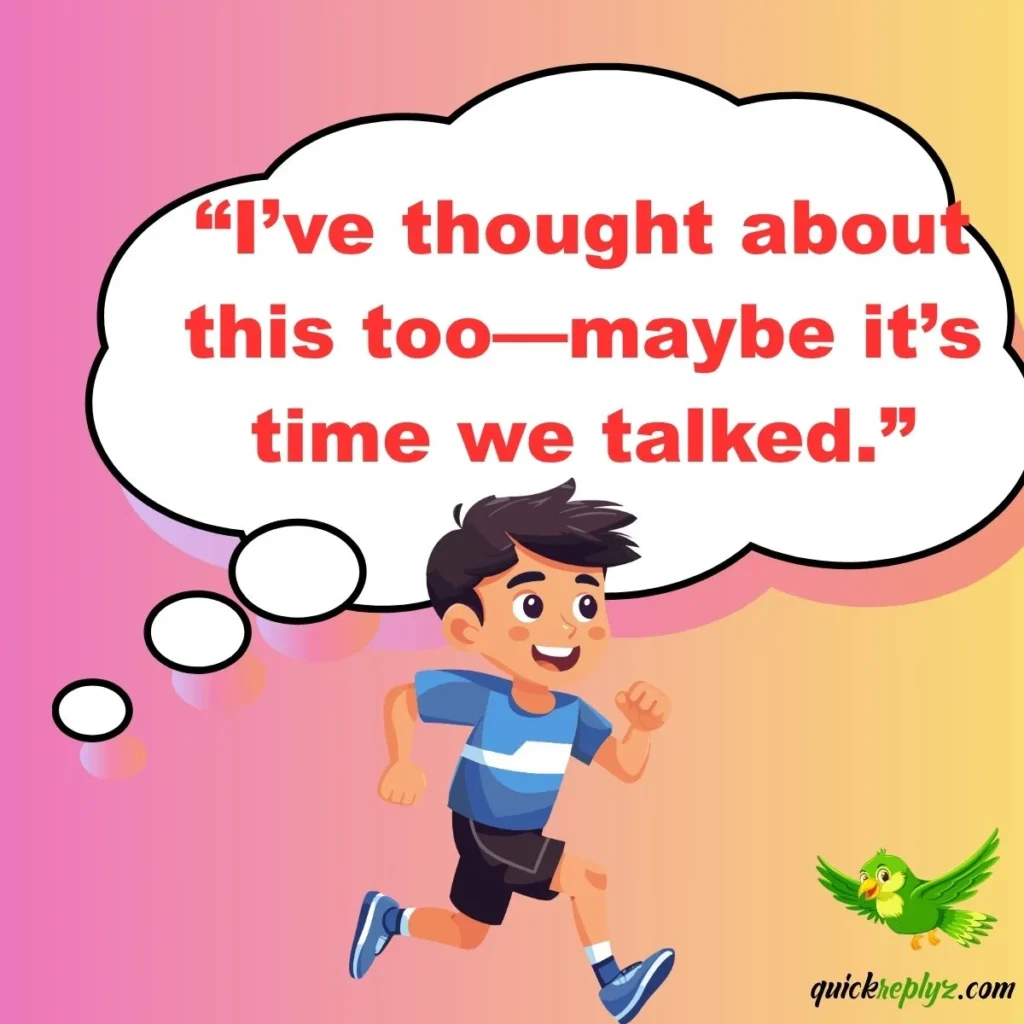
Sometimes you just need a nudge. This response brings the conversation into deeper emotional territory.
Example: “I’ve thought about this too—maybe it’s time we talked.”
Best Use: When the feelings have been mutual but unspoken.
17. “I really value our friendship, and I wouldn’t want to lose it.”
Set gentle boundaries with kindness. It shows that you care, even if you can’t return their romantic interest.
Example: “I really value our friendship, and I wouldn’t want to lose it.”
Best Use: For turning down feelings while preserving trust.
18. “Can I be honest? I’ve been feeling the same way.”
A sincere confession that can spark something beautiful. Use when you’re ready to be vulnerable too.
Example: “Can I be honest? I’ve been feeling the same way.”
Best Use: When you’re prepared to take that next step.
19. “I’m honored—thank you for opening up to me.”
Respect their courage and vulnerability. This response radiates empathy without pressure.
Example: “I’m honored—thank you for opening up to me.”
Best Use: In both romantic and non-romantic settings.
20. “Let’s talk more about this when we’re both ready.”
Sometimes timing is everything. This keeps the door open while ensuring comfort.
Example: “Let’s talk more about this when we’re both ready.”
Best Use: When emotions are high or the setting isn’t right.
21. “That means a lot—can I have some time to think?”
Buy time respectfully. It shows you’re not dismissing them but need space.
Example: “That means a lot—can I have some time to think?”
Best Use: When you need to reflect before responding deeply.
22. “I wasn’t sure you felt that way—thank you for telling me.”
Mutual attraction often hides behind assumptions. This line opens up opportunity.
Example: “I wasn’t sure you felt that way—thank you for telling me.”
Best Use: When you’re pleasantly surprised by their confession.
23. “That’s really kind—I feel lucky to know you.”
Express gratitude while keeping things wholesome and pressure-free.
Example: “That’s really kind—I feel lucky to know you.”
Best Use: When you’re flattered but unsure.
24. “You’re special to me too, in your own way.”
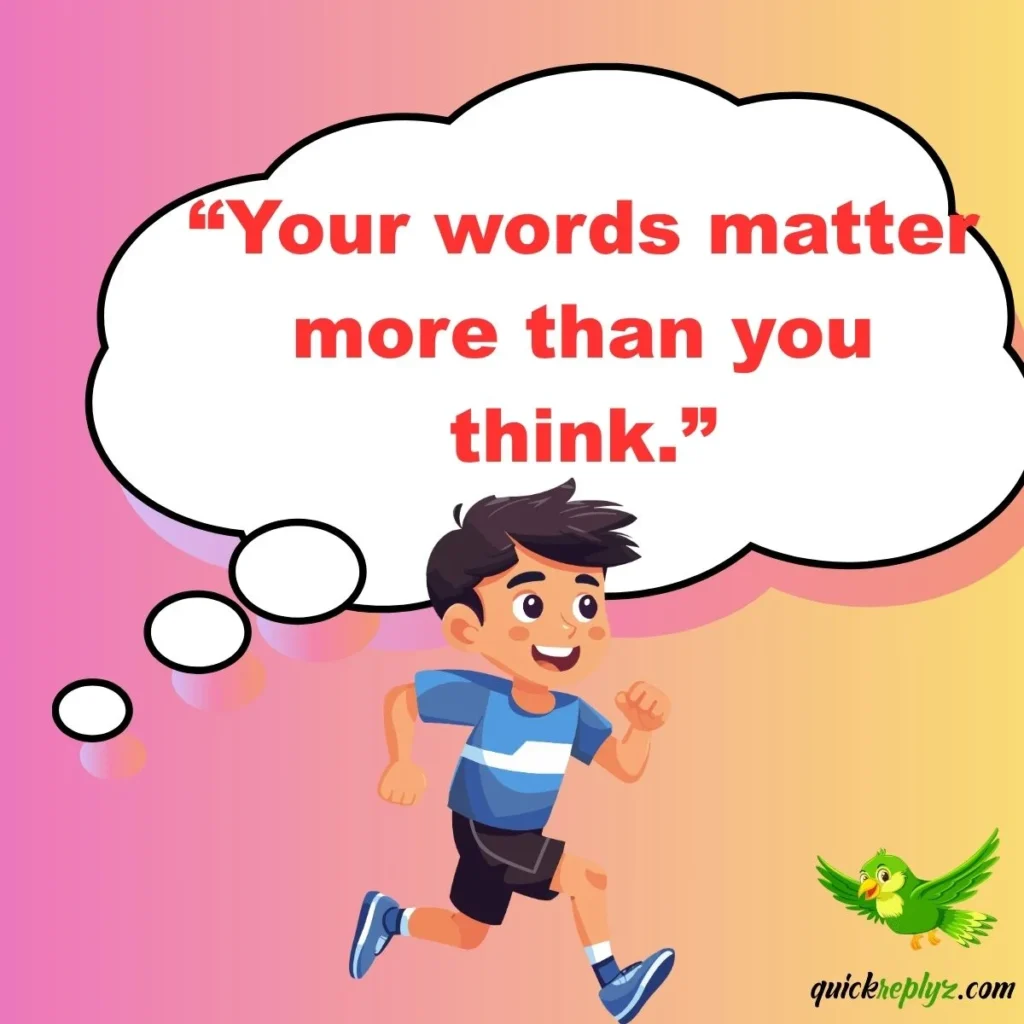
Warm and thoughtful. This allows appreciation without romantic implication.
Example: “You’re special to me too, in your own way.”
Best Use: In close friendships or respectful rejections.
25. “I respect how you feel—let’s not rush anything.”
A safe middle ground that sets emotional pace and boundaries.
Example: “I respect how you feel—let’s not rush anything.”
Best Use: When you need time or want to proceed carefully.
26. “That’s really sweet—I’ve always admired you too.”
A soft and nostalgic approach for people you’ve known for a while.
Example: “That’s really sweet—I’ve always admired you too.”
Best Use: When a long-time friend confesses feelings.
27. “Let’s be honest with each other—what do you want from this?”
Clarify intentions openly. Helps set expectations early.
Example: “Let’s be honest with each other—what do you want from this?”
Best Use: When you need to define boundaries and goals.
28. “Your words matter more than you think.”
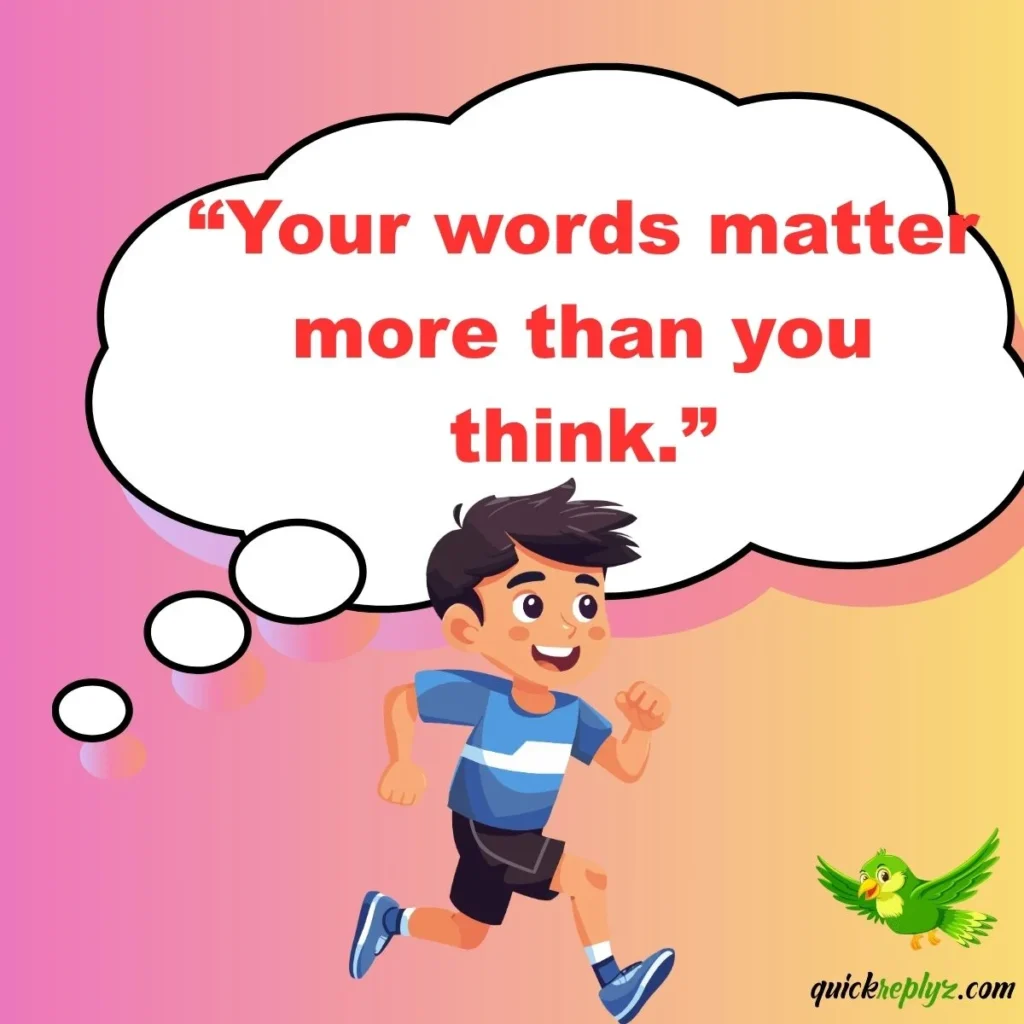
Affirmation without pressure. Great for emotional or sensitive situations.
Example: “Your words matter more than you think.”
Best Use: When they’re insecure about their feelings.
29. “Let’s take this one step at a time.”
Ground the conversation. It’s practical and respectful, especially for cautious romantics.
Example: “Let’s take this one step at a time.”
Best Use: When you’re open but need things to move slowly.
30. “I’m grateful you trust me with your feelings.”
A heartfelt way to acknowledge their vulnerability.
Example: “I’m grateful you trust me with your feelings.”
Best Use: When you’re touched by their honesty, regardless of your response.
Conclusion
Responding to someone who says “I like you” is not about having the perfect words—it’s about being respectful, sincere, and emotionally intelligent. Whether you feel the same or not, your reaction should honor their courage. With these 30 best responses, you’re equipped for heartfelt conversations, delicate rejections, and joyful beginnings. Use your words wisely—they matter more than you think.
FAQs
Q1: What if I don’t like them back?
Be honest but kind. A response like “I appreciate your honesty—I just see us as friends” works well.
Q2: How do I respond if I need time to think?
Say, “Thank you for telling me—can I have some time to process this?”
Q3: What if it’s a close friend?
Go slow. Try “I really care about our friendship—this is a big shift for me.”
Q4: Can I respond playfully?
Yes—if appropriate! Try “Took you long enough!” with a smile.
Q5: Should I always respond immediately?
Not necessarily. Respectfully asking for space is totally okay and emotionally mature.
Julianna Sanders is a creative contributor at QuickReplyz.com who enjoys making communication simple and stress-free. She writes practical replies, messages, and captions that users can instantly apply in real-life conversations. Her goal is to deliver helpful, easy-to-use content for everyone.

